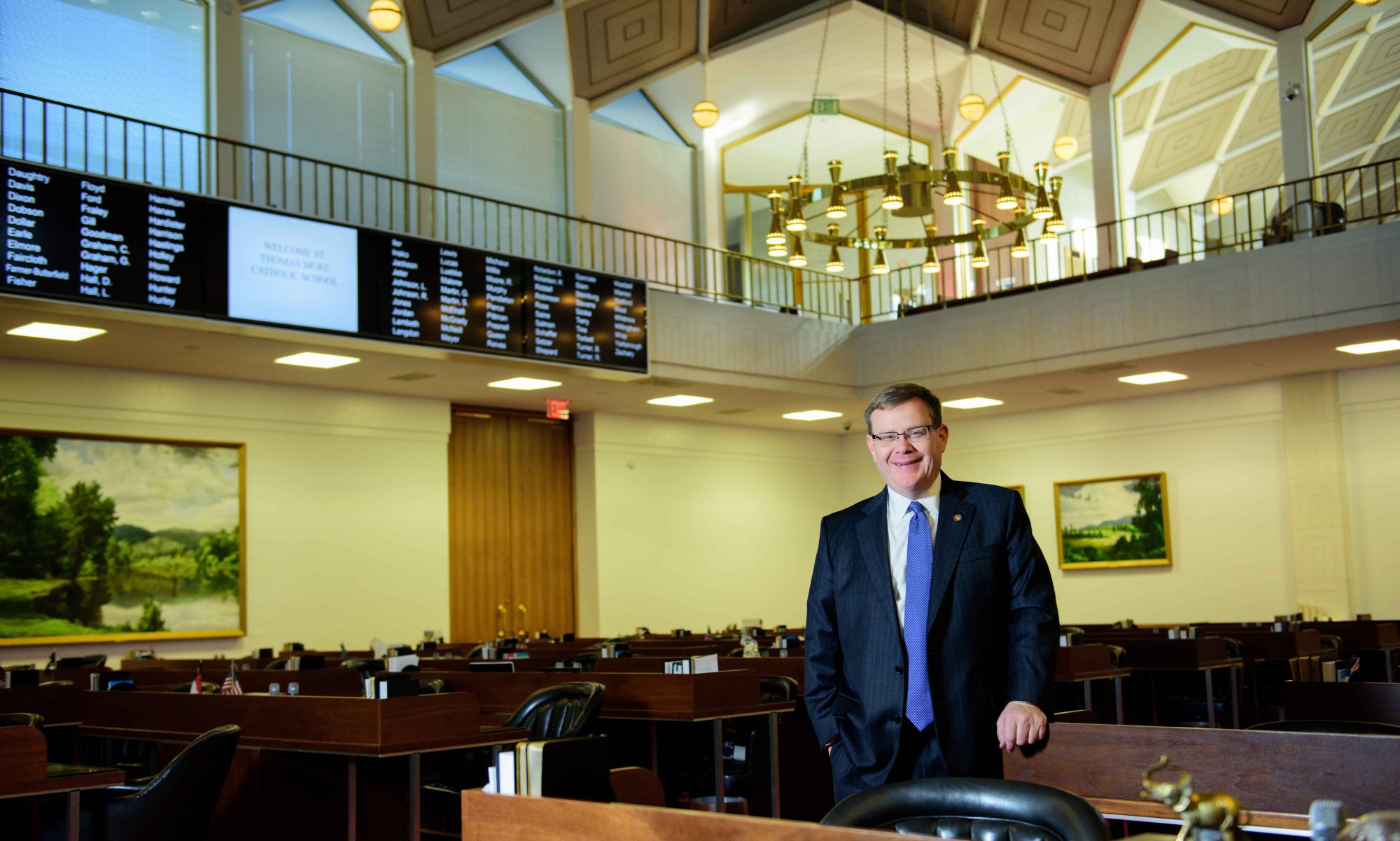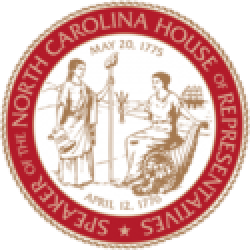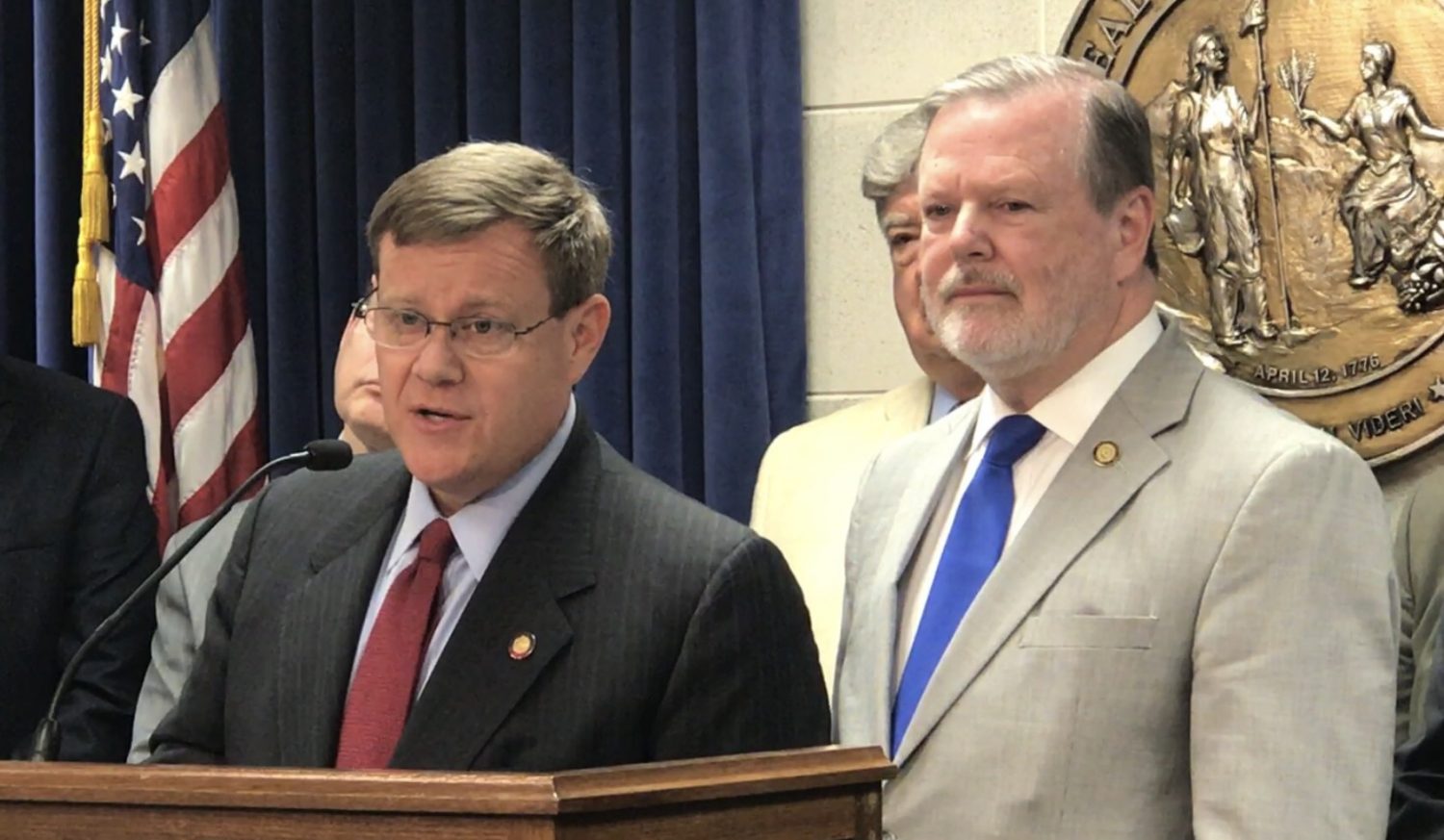Berger, Moore: N.C. taxpayers sent us too much money, so we’re giving it back
Say the people spend their money better than government
Raleigh, N.C. – Senate Leader Phil Berger (R-Rockingham) and House Speaker Tim Moore (R-Cleveland) today announced the Taxpayer Refund Act. If passed into law, every taxpayer would receive a refund in the amount they paid in state taxes, up to a maximum of $125 for an individual or $250 for a couple.
Senator Berger said, “Tax revenues don’t belong to the government, they belong to the people who earned it. Refunding up to $250 means a lot to a family that’s living paycheck-to-paycheck. We collected more money than was needed, so we’re giving it back.”
Speaker Moore said, “Sending taxpayer relief back home to hardworking North Carolinians is consistent with the General Assembly’s successful approach to the state budget that built the $900 million surplus and benefits families with higher take-home pay, more jobs, and a rapidly growing economy.”
Andy Ellen, President of the N.C. Retail Merchants Association, said, “An infusion of $650 million into North Carolina’s economy would certainly be a welcome shot in the arm for North Carolina’s Retail Industry especially as we head into the fourth quarter of the year and the very important holiday season.”
Fast Facts
Cost
There is no “cost” because this bill is returning money to the people who earned it. In that sense, the refund will return $663 million to the people.
Recipients
More than 5.1 million taxpayers would receive a refund. More than 90 percent of taxpayers would receive the maximum refund. More than 350,000 taxpayers would have their entire tax liability covered by the refund.
Mechanism
The North Carolina Department of Revenue will send a check to every taxpayer equal to the amount that person or couple paid in state taxes, up to $125 for an individual or $250 for a couple.
Timeline
The Taxpayer Refund Act instructs the Department of Revenue to issue checks as soon as possible. The Department must mail checks by December 15, 2019 for those who filed before August 1, 2019. The Department must mail checks by February 1, 2020 for those who filed between August 1, 2019 and October 1, 2019.
Impact on the Budget
There is funding available to both refund the surplus to taxpayers and enact a new budget at higher spending levels.
Legislators continue to be willing to negotiate with Governor Cooper about the budget, but he maintains his refusal to sign any negotiated budget into law unless the legislature first passes Medicaid expansion. Instead of sitting on a pile of cash, legislators intend to return this money back to the people who earned it.
Liberal Democratic interest groups will likely say the people’s surplus should be spent by government. Here’s a brief list of priorities that were already included in the budget that Governor Cooper vetoed, and could be passed into law if Governor Cooper would drop his Medicaid-or-nothing ultimatum:
· Public education: $1.43 billion increase over two years
· School construction and repairs: $4.4 billion over 10 years
· Teacher salaries: 3.9% raise over two years (not including bonuses)
· State employee salaries: 5% raise over two years
· Sewer/water infrastructure: $19.5 million to a brand new Rural Infrastructure Fund
Senator Harry Brown (R-Onslow) said, “The idea that this surplus should be spent on other priorities is just ridiculous. There are already spending increases in just about every area, and Democrats are blocking them over a single policy disagreement.”
###


